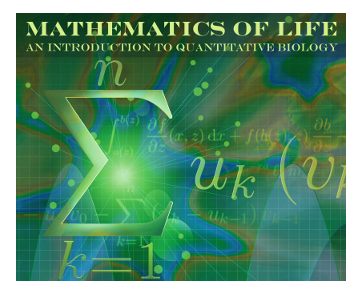Biology 202. Mathematics of Life, an Introduction to Quantitative Biology.
- How do diseases like Ebola or MRSA spread through a human population?
- How do we assess the likely consequences of global change on a boreal forest or coral reef community?
- What is a gene regulatory network, and how does it function?
- How does a neuron process information?
- What is a bioinformatics algorithm, and what is it good for?
- How do we reconstruct the history of evolution from gene sequences?
- What is an endangered species management plan and what is it based on?
- How do we understand the many ways that water affects ecosystems?
- What is evolution?
These questions, and many others in biology, are fundamentally quantitative. A sound grasp of logic and mathematics is needed not only to plan experiments and analyze biological data but to understand the fundamental ideas and principles of biology itself. This course is designed to put the essential concepts and tools of quantitative reasoning into the hands of biologists.
The course will be taught in lab format, with exercises to develop skills and opportunities for personalized guidance from the instructors. Instead of examinations or graded homework, students will track their progress via a graded notebook and perfect their ability to solve problems and communicate solutions through edited drafts of short papers solving challenging problems in biology. The course will cover the elements of statistics, data visualization, dynamics, probability, and scientific computing.
This course will be appropriate for all Program in Biology and Program in the Environment concentrators as well as those intending to pursue careers in medicine, allied health professions, bioengineering, and secondary education.
This course fulfills the Quantitative Analysis 2 requirement for the Biology, General Biology, Ecology & Evolutionary Biology, Cellular & Molecular Biology, Microbiology, Plant Biology, and Neuroscience concentrations. For PitE students, it can be used satisfy either the Analytics requirement or the Natural and Earth Systems Science requirement. The course does not fulfill the prerequisites of Math 215 (Calculus III).
Prerequisites: Math 115 (or equivalent).

